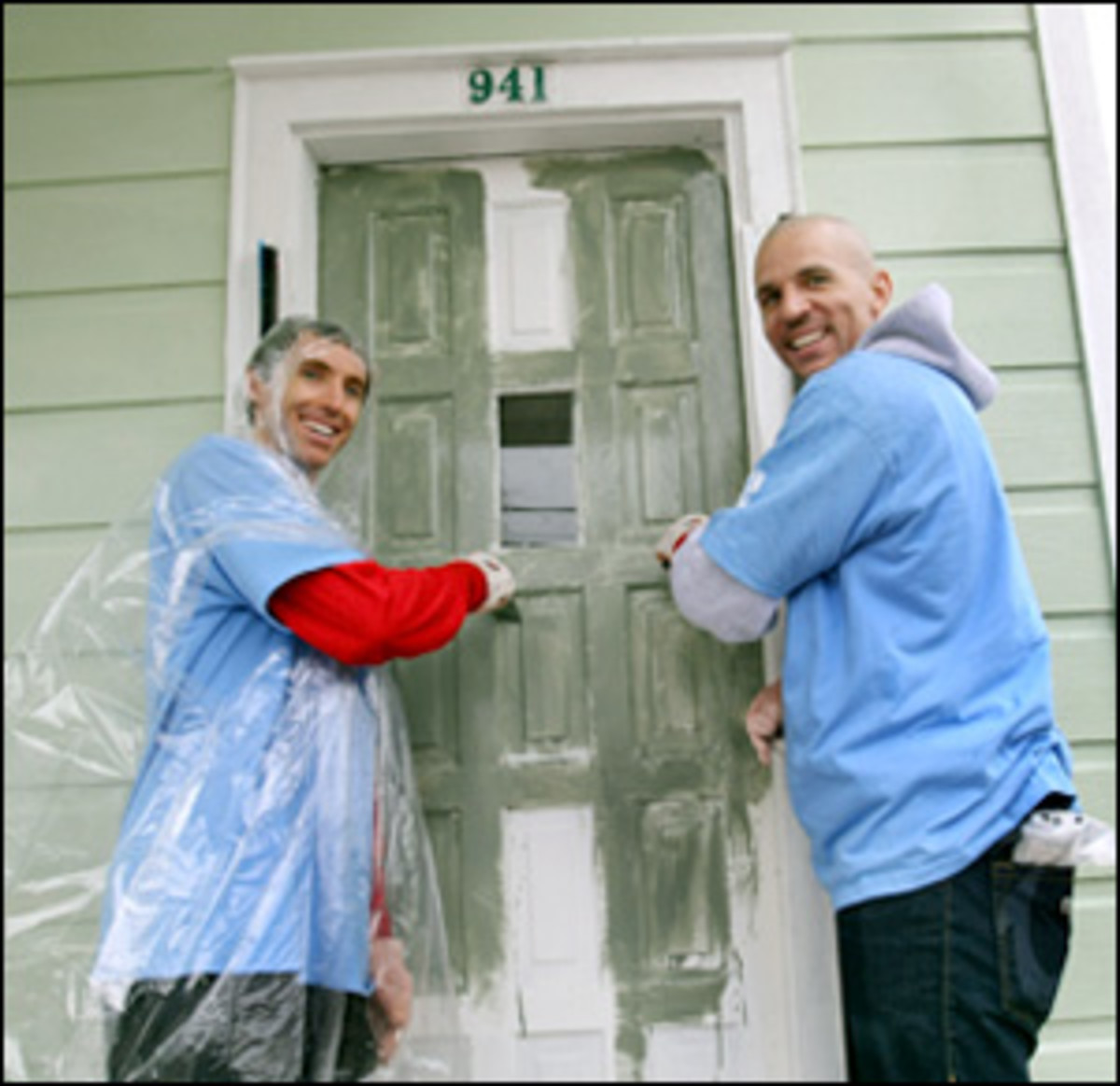The other New Orleans


Last weekend the NBA All-Star Game came to New Orleans. If you were one of the thousands to make the trip to the Big Easy and hang out on Bourbon Street, you no doubt saw one kind of New Orleans. Like the Green Zone in Iraq, offering salsa lessons and satellite television, this is an area of unreality. But many see economic investment in the NOLA tourist center as critical to economic revival.
As NBA commissioner David Stern said in May 2006: "The award of NBA All-Star 2008 is our vote of confidence in the progress that is being made in the reopening and rebuilding of New Orleans' tourism infrastructure. New Orleans will become the basketball capital of the world in February 2008, and demonstrate to a global audience that New Orleans is very much open for business."
There is no doubt that Stern & Co. were tickled green to do business in the new New Orleans. But as a strategy to rebuild the city, it's shoveling sand in the ocean. This was seen last Friday when the league held an "NBA Cares All-Star Day of Service." The event featured players (including LeBron James and Jason Kidd) and 2,500 league employees who spread out all over the city to aid in rebuilding efforts, an operation that also served as a cunning plea for good PR after a year of dirty referees, sexual harassment trials and an All-Star Game in Las Vegas that turned into a full-fledged national controversy.
As self-serving as it may have been, anytime players leave the athletic bubble -- their own mental Green Zone -- it is a positive step, especially when they speak out on the experience. "It's a great shame," Steve Nash said after seeing the other New Orleans. "I can't relate to what these people went through. It's devastating. To come here and see what little has been done is disappointing. It feels like the city has been forgotten in a lot of ways. This is not what America's about and we should look at why we failed."
Nash's friend Dirk Nowitzki, who was groomed to be an NBA player in Germany from the time he was old enough to tie his own shoes, was simply shocked. "I didn't think it was going to be this bad," he said. "I really had no idea. A lot of work needs to be done. This should have been done two years ago. This city needs a lot more help than us painting the walls. But hopefully this will be educational and us being out here will help get the message out. They need all the help they can get."
Nowitzki is right that it will take more than a coat of paint. This is obvious if you take a journey to the B.W. Cooper, C.J. Peete, Lafitte and St. Bernard housing projects. People should see them before they are swallowed whole by the most daring gentrification project this side of Baghdad.
These four "developments," which 4,500 families call home, are now set to be demolished and replaced by 800 condominiums. This, for all intents and purposes, will end low-income housing in the city. Many of these families haven't even been able to come back since the levees broke, unable to even speak out for their homes.
The demolition reflects a city undergoing a radical reconstruction. For the first time in two decades, the City Council has become somewhat paler. As TheNew York Times recently reported, "In one of the clearest signs yet of Hurricane Katrina's lasting demographic impact, the City Council is about to have a white majority for the first time in over two decades, pointing up again the storm's displacement of thousands of residents, mostly black."
Last December, at a City Council meeting where the politicians voted to destroy the projects, all the simmering rage boiled over. Hundreds gathered to give testimony and save their homes, but were locked out by police on orders from the Council. As they tried to force their way in, police broke out the pepper spray and Tasers. Then came the SWAT team. The lucky were arrested; others were sent to the hospital. No matter how well-reasoned the argument, a Taser tends to stop the dialogue.
Civil rights lawyer Bill Quigley, one of the many arrested, wrote later: "Some were Tasered, many pepper sprayed and a dozen arrested. Outside the chambers, iron gates were chained and padlocked even before the scheduled start. Only developers and those with special permission from council members were allowed in. Despite dozens of open seats in the council chambers, pleas to be allowed in were ignored. Chants of 'Housing is a human right!' and 'Let us in!' thundered through the concrete breezeway."
Last weekend thousands came to New Orleans to celebrate the global popularity of a sport in which the vast majority of players are African-American. Basketball is a game often compared to jazz, with its improvisation and ebb and flow. There is nothing wrong with celebrating the sport in the birthplace of jazz, especially when one All-Star in particular, New Orleans Hornets point guard Chris Paul, plays like Coltrane. But a fresh coat of paint isn't the answer. The people who have roots in this remarkable American city just need to come home.
